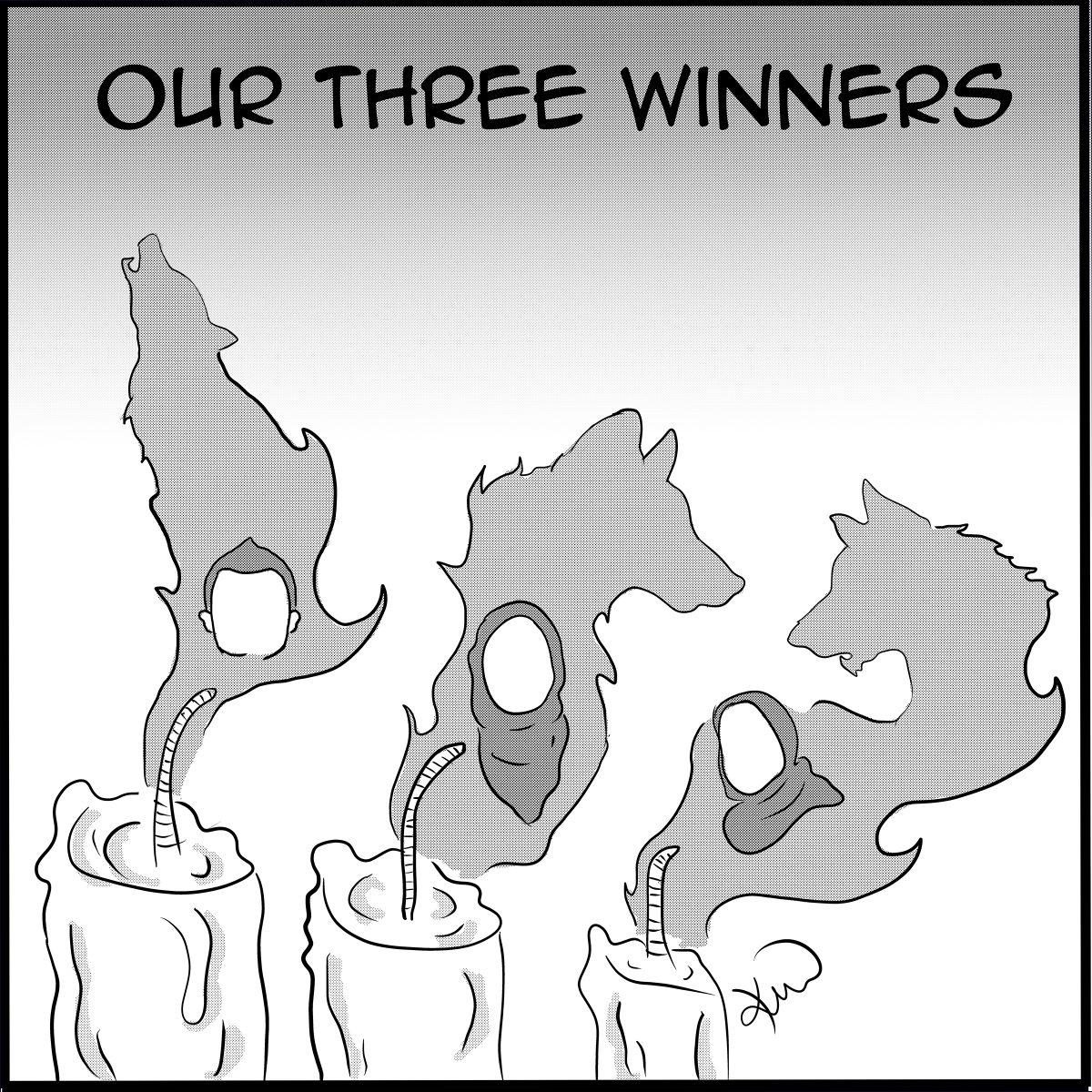
Kelley Wheeler, junior studying art studies
Our three winners
A year ago today, Deah Barakat, his wife Yusor Abu-Salha and her sister Razan Abu-Salha were executed by their neighbor Craig Hicks.
It’s undeniable that Deah, Yusor and Razan were thoroughly American.
In a StoryCorps interview with her former teacher Mussarut Jabeen in May 2014, Yusor said, “Growing up in America has been such a blessing, and although in some ways I do stand out, such as the hijab I wear on my head, the head covering, there’s still so many ways that I feel so embedded in the fabric that is, you know, our culture. And here we’re all one.”
Scrolling through Deah’s timeline on Twitter, you can see his palpable love of sports interspersed with posts such as, “It’s so freaking sad to hear people saying we should ‘kill Jews’ or ‘kill Palestinians.’ As if that’s going to solve anything SMH.” He had been pursuing a career in dentistry, going so far as to plan Project Refugee Smiles, an operation that would aim to provide Syrian refugees with dental care.
Yusor herself was highly accomplished at 21 and a big fan of sweet tea, football and hip-hop, something she and her sister had in common. After graduating a semester early from NC State, she had planned on joining her husband at UNC-Chapel Hill’s dentistry school in the fall of 2015. She was clever and loved Saturday Night Live. Her friends admired her for her sincerity and generosity.
Razan went by the Twitter handle “@realmoneyrazan” and posted statements such as, “do u guys even listen to DRAKE,” “100% gonna fail my exam tomorrow but it’s okay cause missy Elliot” and “this week needs to chillllllllllll.” She lamented the plagues that often afflict NC State students, such as strict deadlines and Moodle failures. She was 19, and she liked “Parks and Recreation.” Her Tumblr page is filled with the beautiful images she collected (she was a design student, after all), alongside stills from “22 Jump Street,” “The Breakfast Club” and reposts of blog entries discussing the fundamental misunderstanding Muslims — particularly, Muslim Americans — routinely encounter.
In the early evening of Feb. 10, 2015, Deah’s body was found to have multiple bullets lodged in it. His chest and left arm were bloodied, indicating that he might have attempted to shield himself from the rain of gunfire.
The bullet was planted in the top of Yusor’s head within “contact range,” meaning that the muzzle of the firearm was likely in direct contact with her when it was fired.
It is presumed from contact wounds that Razan was shot through the head, the handgun pressed to her scalp.
When we ask ourselves what could possibly have motivated the deaths of Deah, Yusor and Razan, the question shouldn’t be dismissed with something as simple and mindless as the assertion that their murderer was mad about a parking space.
It is easy to assign such an arbitrary cause to such tragedy because then we can begin to make sense of it. It is hard to accept that some people might take such extreme actions without any real reason. It is even harder to admit that there may not be a readily accessible answer or solution — to admit that perhaps in this country we put the Second Amendment before the right to live.
Perhaps in this country we make it too easy to think of certain people as less than people, to think of certain lives as worthless in the shadow of the “greater good” and to think that a parking space is worth the cost of three innocent American lives.